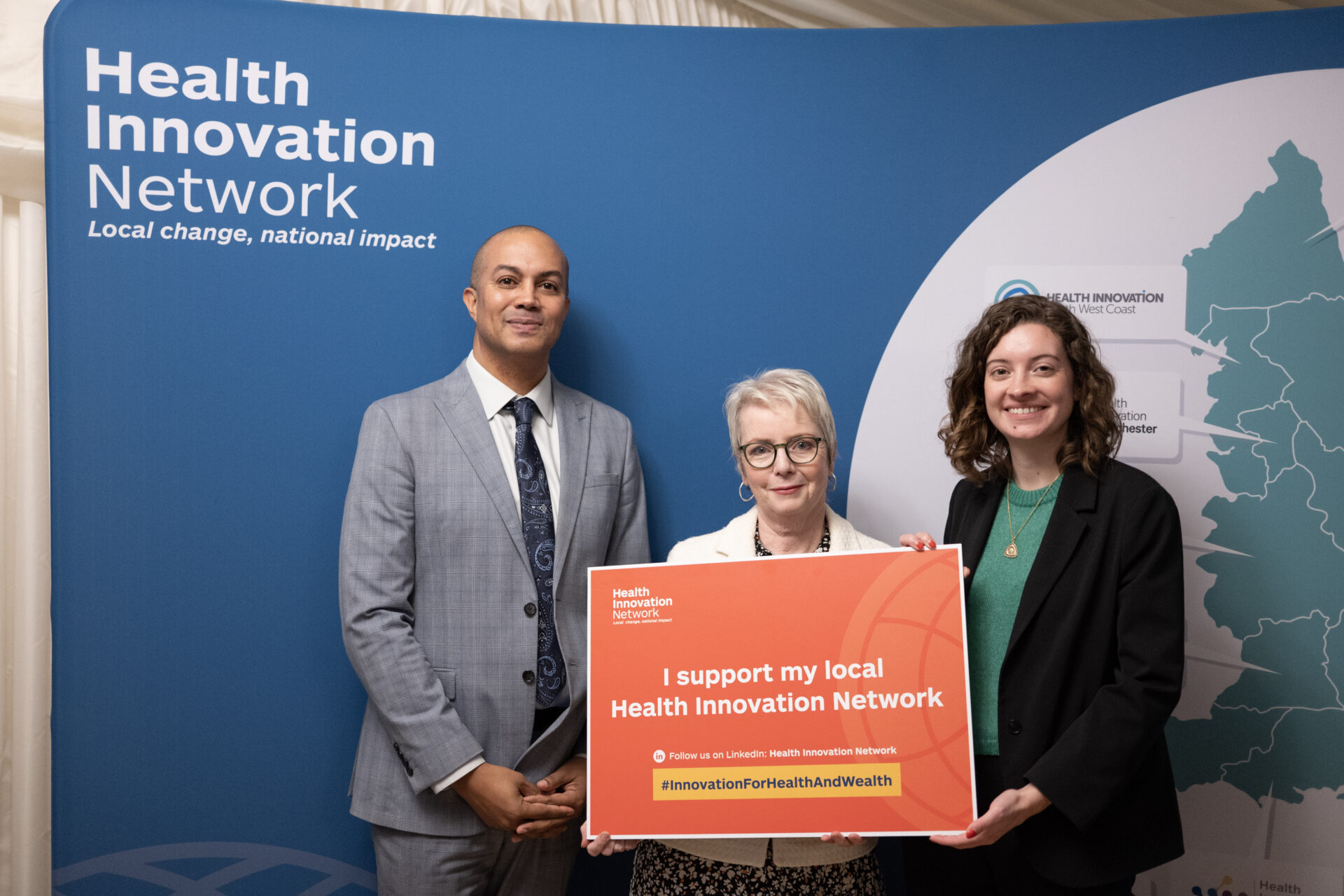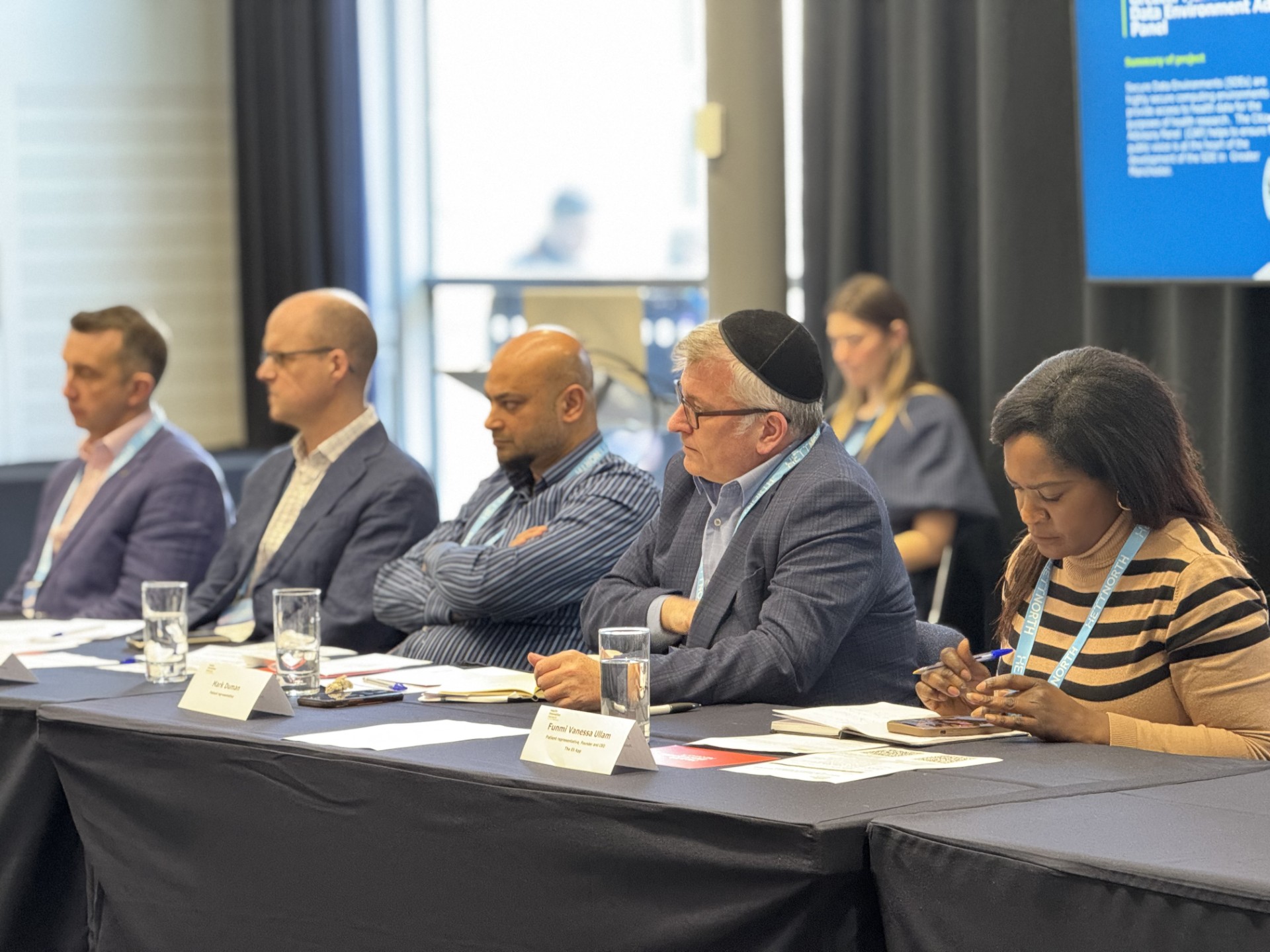Health inequalities are the differences people experience in health outcomes due to their individual circumstances. They can impact everything from our day-to-day wellbeing to our life expectancy and are usually avoidable. By working closely with their communities, health innovation networks are tackling the causes of these inequalities to improve people’s lives.
Inequalities can arise depending on our gender, ethnicity, our beliefs and disabilities. However, they are also affected by factors like where we live, employment, access to green spaces, and transport links.
Figures compiled by The King’s Fund from national data show that men in the most deprived areas of England can expect to die as many as nine years earlier than men born in the least deprived areas. Meanwhile, women born with a learning disability can expect to live on average 17 years less than women in the general population.
There is a stark north-south divide in healthcare too. Blackpool in the north west has the highest rate of avoidable deaths at just over 405 deaths per 100,000, almost three times higher than Hart in Hampshire, which has the lowest rate.
NHS England is tackling this issue through its Core20PLUS5 approach, which is concentrating on the most deprived 20% of the population, and other population groups identified locally, to reduce inequality in five clinical areas: maternity, severe mental illness, chronic respiratory disease, early cancer diagnosis, and optimising blood pressure to combat strokes.
Tackling health inequality is one of our priorities. Aligned with the Core20PLUS5 approach, we are committed to not only ensuring that new ideas and technology don’t exacerbate inequalities that exist, but can actively ensure fairer healthcare access for all.
Being a national network of 15 locally-embedded organisations means we are ideally placed to work with local communities, connecting them with local health and care systems to explore in detail the differences that exist, and their causes, which is integral to tackling the problem. A significant part of our role is to support the translation of national innovation priorities locally.
Here are some examples of how local transformation projects are seeking to reduce inequalities in their local population:
GP outreach at Belle’s Place in Devon
Ilfracombe is located in one of the most beautiful parts of the country, with a stunning coastline, bustling harbour and seafront. Yet the town falls in the top 10% most deprived areas in England. People in parts of Ilfracombe have a 15-year lower life expectancy than people who live in more affluent parts of Devon.
At Belle’s Place, a community hub on the seafront, over 200 locals with higher-than-average health needs are provided with a safe place to eat a meal and socialise. Many are in temporary accommodation and don’t have a strong network of family or social connections. The hub is playing a vital role by improving access to routine healthcare assessments through its primary care outreach service, including cancer testing.
It’s a one-year pilot scheme for now, which is being evaluated by Health Innovation South West, through a national Innovation for Healthcare Inequalities Programme.
The ambition is to expand the model of drop-in sessions for routine care in other rural or coastal areas. Andrea Beacham, from Royal Devon University Healthcare NHS Foundation Trust, explains: “The challenge is that we tend to have a one-size-fits-all service that works well for a lot of people but leads to widening inequalities when it doesn’t meet the needs of people with multiple health conditions and complex lives. We need to be able to demonstrate that a person-centred approach is not only better for the patient but is the most efficient use of resources.”
Diabetes education for communities in South London
HEAL-D is a diabetes self-management support and education programme for people living with type 2 diabetes from African-Caribbean communities in south London. It focuses on diet and lifestyle goals, through supporting and motivating the development of self-management skills.
The programme has been co-produced and culturally tailored for adults of Black African and Caribbean heritage. Health Innovation Network South London teamed up with the National Institute for Health Research Applied Research Collaboration North London and King’s College London to evaluate HEAL-D.
They looked at whether it could be helpful in different areas or with different target groups, and the effectiveness of online delivery of the programme, something that was developed out of necessity during the pandemic.
The evaluation formed part of the national NHS Insights Prioritisation Programme, which aimed to identify and test promising innovations that support post-pandemic ways of working, build service resilience, and deliver benefits to patients.
The results have been promising, showing HEAL-D Online is both acceptable and feasible as an innovation, although it will be important to consider those at risk of digital exclusion. Crucially, through analysis to identify populations experiencing health inequalities in type 2 diabetes healthcare access, and working with them to understand their needs, it was possible to identify where HEAL-D Online could address gaps and reach more people.
One of the people who took part in HEAL-D said it has made a significant difference: “The HEAL-D team have brought hope. They understand our African and Caribbean way of life and have deep-dived into how to connect with us. The HEAL-D programme breaks things down and builds them up again in a way that we can identify with.”
Holistic cancer care in North East London and Essex
When someone is diagnosed with cancer, they face not only the reality of their diagnosis but also the ripple effects on their everyday life. They need to attend medical appointments to receive treatment whilst juggling work, bills, transport, family responsibilities and sometimes other conditions too. For some, these disruptions can lead to them missing appointments and even dropping out of treatment altogether because it is simply too much to manage.
People affected by cancer do not have equitable access to the practical, emotional and physical support they need to keep their lives on track. Those who feel the biggest impact are often those with the greatest need.
UCLPartners and Macmillan Cancer Support will be working in collaboration with partners in the NHS, and communities in London and South Essex, to look at holistic cancer support in England. The programme will assess the direct support, referrals and signposting to local services available to meet a range of financial, emotional or practical needs. Previous work has shown these can have a positive effect on health and help more patients to stay in treatment.
During the first year of the programme, they are hearing from people living with cancer, their family and friends about their experiences and needs, as well as healthcare providers. In this video, Debbie Potts and Heidi Wells talk about the impact this kind of support has had along their journey.
Visit our healthcare inequalities page for further information about how we are working to widen access to care and create health equity across the population.

The Health Innovation Network is delighted to announce the launch of Innovation Insights, a brand-new webinar series designed to highlight the latest in health innovation, offering attendees valuable insights into the adoption and spread of innovation within the health and care landscape. Each interactive webinar will feature: Expert presentations: Delivered by thought leaders across [...]

The Health Innovation Network, at an event sponsored by Sarah Coombes MP, brought together parliamentarians including Health Minister Karin Smyth MP and Chair of the Science, Innovation and Technology Committee, Chi Onwurah MP to meet with six innovators supported by health innovation networks across the country and their NHS partners. At the Meet the Innovators: [...]

The need for fast-paced innovation in healthcare is widely acknowledged. And ensuring that healthcare innovation is shaped by the people it serves remains a pressing priority – one made all the more evident by the growing emphasis on health equity in the 10 Year Health Plan. Patient voices are often cited as central to healthcare [...]






